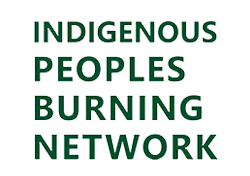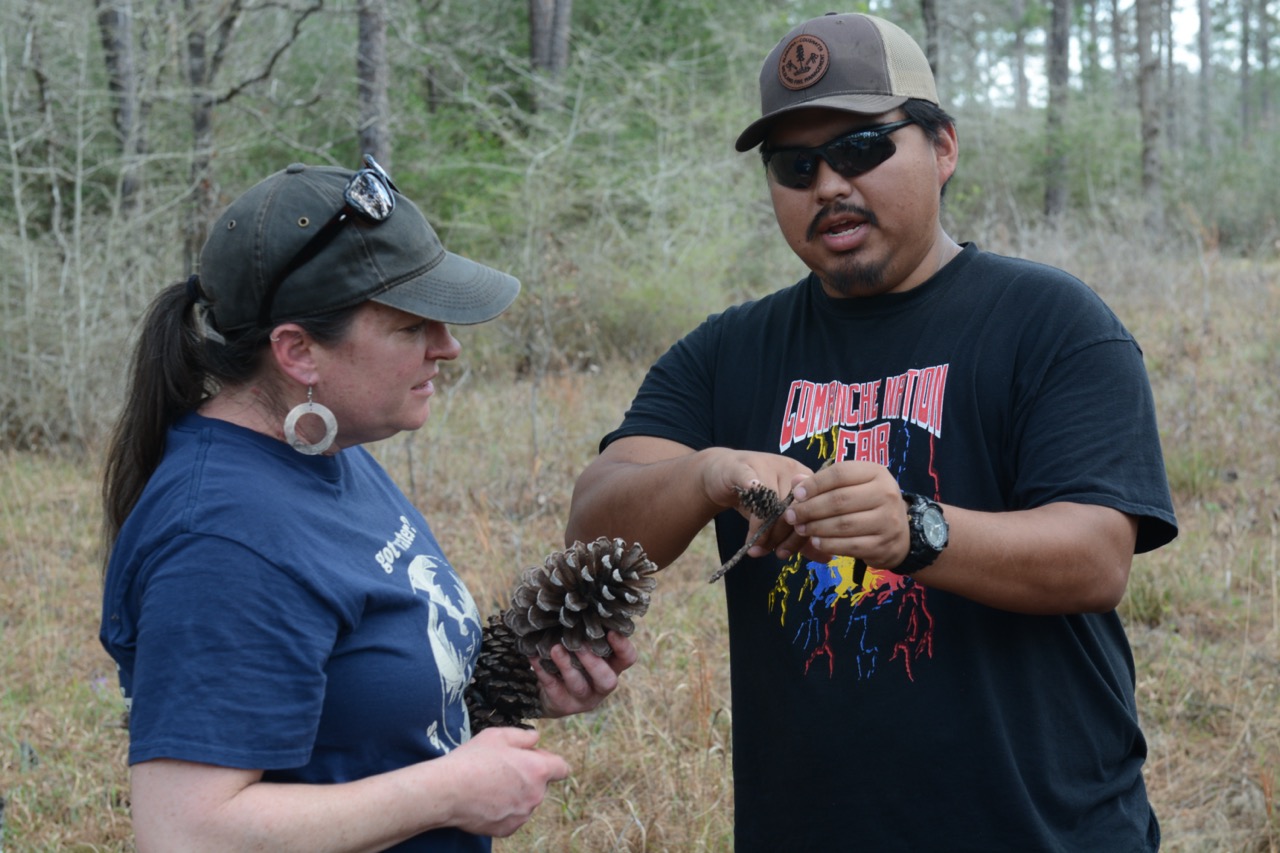

HOW WE WORK
The IPBN’s activities are rooted in each participating Native American community. Each has a long-standing fire culture and each has the right to shape a path to a better fire future. As such, the activities of the IPBN are customized by each community for that community. Sometimes the work is led by a Tribal government, like a department of natural resources or fire department, sometimes by an Indigenous-led nonprofit organization, and sometimes by a few community members. No matter the path, the work is focused on locally determined revitalization of traditional fire culture in the context of today’s fire situation.

Typical IBPN activities include community- and family-based burning, fire training that supports Indigenous cultural burning, culturally centered fire planning, Indigenous-led research, and connecting elders and youth to prepare the next generation of cultural fire practitioners. Members also come together, virtually or in person, to take part in working groups to explore and address topics of shared interest, such as building a cultural burn program or understanding the Reserved Treaty Rights Lands Program.
The IPBN also works to support agencies in embracing Indigenous cultural burning. Many agency partners are unaware that Indigenous fire cultures still exist. IPBN members are eager for their sacred relationships with fire and sophisticated fire practices to be welcomed so that they can help bring fire back into balance across the United States.
Fire practices are fundamentally place-based, applicable to each community’s ancestral territory. As such, the IPBN is not designed to train fire practitioners in mainstream fire systems designed for mobile firefighting. Many Indigenous community members excel at firefighting as part of the much-needed federal fire workforce, and many tribal governments have highly respected fire and fuels crews that serve throughout the U.S. The IPBN’s focus is on place-based, Indigenous fire cultures that compliment the federal fire workforce.
- Revitalization of cultural knowledge, practices, and belief systems
- Juxtaposition of cultural burning with dominant fire institutions
- Fire planning across large landscapes
- Training in cultural burning
- Reinstating cultural burning on protected areas
- Outreach and communication with non-tribal stakeholders
- Learning and evaluating by doing, observing, and listening
- Youth and elder engagement

Organizational Structure
The IPBN’s leadership team of Native American Co-leads and Advisors guides network growth and activities, while support staff help carry out network activities.
- Mary Huffman, director, Indigenous Peoples Burning Network, The Nature Conservancy
- Bob Bale, cross-cultural fire practitioner, The Nature Conservancy
- Brandon Cobb, Indigenous partnerships program manager, The Nature Conservancy in Nebraska
- Autumn Bjugstad, executive coordinator, North America Fire, The Nature Conservancy
Working Groups
Across the IPBN, participants share similar challenges as we work to revitalize our fire cultures. We have working groups that enable us to focus on specific topics. These working groups may come, go or stay active according to participants’ needs and interests. Currently the IPBN has three working groups:
The Cultural Burning Program Builders Working Group provides peer-to-peer learning for participants who are just starting their cultural burning programs. They may have no fire program in their tribe, or they may want to integrate an emphasis on Indigenous cultural burning into an existing fire program. Participants in this working group may also be exploring whether or not they want to become part of the IPBN.
The National Scope Working Group serves participants who share interests in working with federal and state agencies in support of Indigenous cultural burning. Participants are often involved in cross boundary initiatives in their homelands.
The Intergenerational Learning and Training Working Group fields requests from throughout the IPBN to provide fire training opportunities that support Indigenous cultural burning. Staff members of tribal government fire departments and Indigenous community members alike may request IPBN-supported travel opportunities for live-fire training and practice designed to meet cultural needs.
To the extent that participants are seeking mainstream federal or state certifications and qualifications for prescribed burning, we refer them to training activities that take place throughout the Fire Networks, prescribed burning associations, government agencies and tribal colleges. This may include online courses, cooperative burning and TREX events.
For Non-Indigenous Partners
The Indigenous Peoples Burning Network was created by and for Indigenous fire practitioners and cultural leaders. However, the IPBN also works to support others, such as state and federal agencies and non-governmental organizations to become congruent with cultural fire practices and to operate through Tribal perspectives. For non-Indigenous participants in the Fire Networks, we host a Beginners Working Group, plus an ongoing “graduates” group.
Beginners Working Group
The Beginners Working Group is for primarily people in the Fire Networks who want to develop fire partnerships with Native American Tribal nations, but who aren’t sure how to get started. If you are like many non-Indigenous people, you might be asking, “What is my first step? What if I say the wrong thing? How do I process the history that I’m just now learning?” For more information on the Beginners Working Groups, please contact Mary Huffman or Autumn Bjugstad.

